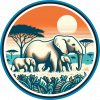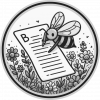Dear Wildlabs community,
my name is Nikolas and I am a Master's Student from Lisbon. Like many of you, I grew up with a great passion for the wildlife that we are surrounded by and am struggling to see it being hurt. This is why I decided in a kinda bold move to write my management thesis about technologies in wildlife conservation. Particularly, how innovators innovate on these technologies to get them to their goals.
I say bold because it turns out that my supervisor is not really supporting me in this idea, and makes me feel like I should have decided on a more traditional management topic. It's also soo tricky to get relevant interview partners to learn what the innovation process is looking like.
So now my last resort is this amazing community. Anyone of you who deploys and develops technologies for wildlife conservation (most optimally for animals in reserves) would be such a tremendous help if you could help me! It would either be if you could help me with a 15-minute interview where you allow me to interview you about how you develop your technologies or if you can direct me to someone that might be up for such an interview :)
You can either reach me here, on 50775@novasebe.pt or always schedule a call with me here to learn more :)
I am so much hoping to hear from you guys and also wanted to say that I so much appreciate your work!
All the best
Nik
11 December 2022 2:13pm
Hello! Thanks for the message. I'm curious have you looked through some of the more recent publications and reviews on ways technologies help with this? Examples include:
Perspectives in machine learning for wildlife conservation | Nature Communications
Inexpensive and accessible sensors are accelerating data acquisition in animal ecology. These technologies hold great potential for large-scale ecological understanding, but are limited by current processing approaches which inefficiently distill data into relevant information. We argue that animal ecologists can capitalize on large datasets generated by modern sensors by combining machine learning approaches with domain knowledge. Incorporating machine learning into ecological workflows could improve inputs for ecological models and lead to integrated hybrid modeling tools. This approach will require close interdisciplinary collaboration to ensure the quality of novel approaches and train a new generation of data scientists in ecology and conservation. Animal ecologists are increasingly limited by constraints in data processing. Here, Tuia and colleagues discuss how collaboration between ecologists and data scientists can harness machine learning to capitalize on the data generated from technological advances and lead to novel modeling approaches.
16 January 2023 2:42pm
I'd be happy to chat with you if you wanted! My expertise is within passive acoustic monitoring particularly. The Conservation Tech Directory might be useful for you in identifying relevant actors within the space.
16 January 2023 5:16pm
Happy to contribute tgray@woodsholegroup.com

Pen-Yuan Hsing
MammalWeb.org
17 January 2023 5:12pm
My original background is in ecology and conservation, and am now in the elected leadership of the Gathering for Open Science Hardware which convenes researchers developing open source tech for science. I am not working on a specific piece of technology right now, but am happy to contribute some higher-level views for your interview if that helps.













Andrew Schulz
Georgia Institute of Technology